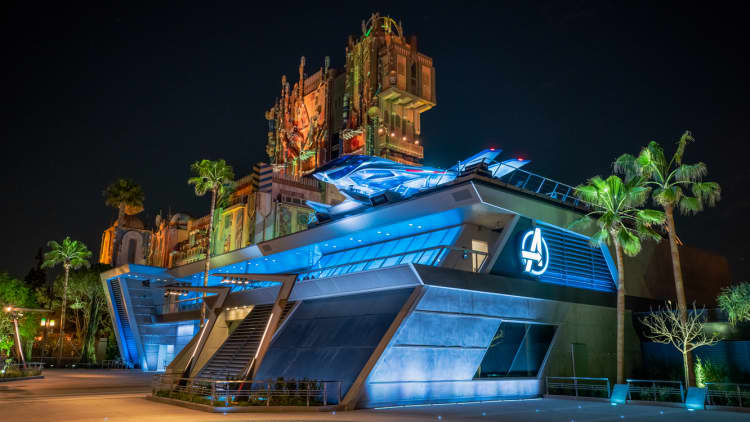This 29-year-old book predicted the 'metaverse' — and some of Facebook's plans are eerily similar (original) (raw)
By changing Facebook's name to Meta, Mark Zuckerberg has made it clear he thinks the future of the internet lies in something called the "metaverse," a virtual world where people will live, work and play.
It's a futuristic idea — but the term's origin actually comes from the past. Almost 30 years ago, in fact.
Author Neal Stephenson coined the term "metaverse" in his 1992 science-fiction novel "Snow Crash," which envisions a virtual reality-based successor to the internet. In the novel, people use digital avatars of themselves to explore the online world, often as a way of escaping a dystopian reality.
Nearly three decades later, that's essentially the future that Zuckerberg says he's trying to build with Meta — minus the dystopia. Companies like Microsoft, Roblox and Epic Games are also planning their own metaverses. And Stephenson now works as virtual reality start-up Magic Leap's "chief futurist," after an advisor stint at Jeff Bezos' space company Blue Origin.
Last week, Stephenson told Axios that he has "never had any communication with Zuckerberg." That might be good: If Meta fulfills all of Stephenson's prognostications, its metaverse may not be such an idyllic place to spend the future.
Here's what the author predicted 29 years ago, and how it compares to the virtual worlds that Meta and other tech companies are trying to build today.
What 'Snow Crash' predicted
Set in the early 21st century, "Snow Crash" imagines a bleak future: The global economy has collapsed, and federal governments have lost most of their power to a handful of giant corporations.
The metaverse is an escape, and the novel's main character — a nearly broke computer hacker and pizza delivery driver who bears a tongue-in-cheek name, Hiro Protagonist — spends much of his time there. He accesses the metaverse by wearing goggles and "earphones," and appears within the digital world as his own customized avatar.
Once there, avatars can stroll down a single wide street, tens of thousands of miles long, and home to amusement parks, shops, offices and entertainment complexes. People with lesser means often use public terminals to access the metaverse, and are generally looked down upon by users with superior technology.
And actions in the metaverse can have severe consequences: Much of the plot revolves around Protagonist trying to stop a computer virus that causes metaverse users to suffer real-world brain damage.
Some 'metaverse' elements already exist
The headsets that "Snow Crash" characters use sound similar to today's virtual reality headsets. Meta's Oculus brand already makes several of them — and in a blog post last week, Zuckerberg argued that such tech will be necessary for users to feel "fully immersed" in his company's future metaverse.
Virtual avatars also exist: They've been in video games for decades, and users of large online communities like Roblox, Microsoft's "Minecraft" or Epic Games' "Fortnite" are well accustomed to exploring virtual worlds with avatars.
People spend billions of dollars each year on digital clothing and accessories for their avatars. That willingness to spend could be a key monetization factor for companies like Meta.
"Being able to basically have your digital goods and your inventory and bring them from place to place, that's going to be a big investment that people make," Zuckerberg said on an earnings call in July.
The metaverse in "Snow Crash" features an encrypted electronic currency, similar to today's cryptocurrencies. And the novel explores the idea of spending real money on virtual real estate, which is already playing out on blockchain-enabled virtual reality platforms like Decentraland and The Sandbox, CNBC's "Fast Money" noted in March.

What still needs to happen — and where it could go wrong
Even if the idea fully catches on, it will undoubtedly take some time before millions of users are regularly exploring metaverses.
Even Zuckerberg preaches caution. Meta could need "to invest many billions of dollars for years to come before the metaverse reaches scale," he said last week at Facebook Connect, his company's augmented and virtual reality conference.
Lots of those dollars could go toward developing higher quality, more affordable virtual reality headsets. In a Facebook post on Monday, Zuckerberg also touted the promise of "high-res touch sensor" materials, which could help replicate the physical sense of touch in a virtual world.
Such technology could make future metaverses extremely addictive — one of the major flaws in Stephenson's imagined world. In "Snow Crash," some characters develop unhealthy addictions to the virtual world, never disconnecting and avoiding reality at all costs.
Zuckerberg's own predictions for Meta echo some of those qualities. In his blog post last week, he described his company's future metaverse as a place where "you'll be able to do almost anything you can imagine — get together with friends and family, work, learn, play, shop, create."
Further complicating matters, Meta already faces an ongoing wave of criticism over the negative effects of its social media platforms, like Facebook and Instagram, on its users' mental health.
Predictably, Zuckerberg seems undeterred.
"Obviously, the book has this whole environment around [metaverses] that's sort of negative," he told The Verge on Thursday, when asked about the influence of "Snow Crash" on Meta's vision of the metaverse. "But I don't think it has to be that way."
Sign up now: Get smarter about your money and career with our weekly newsletter
Don't miss:
